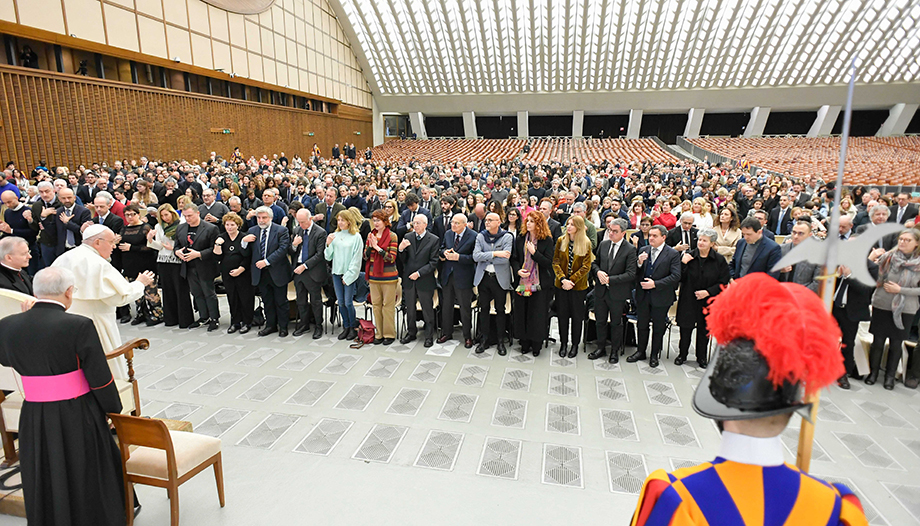Journalism as a search for truth, a complex subject that implies the virtue of listening, the capacity for discernment and care in the use of words. A few days after his message for the 58th World Communications DayPope Francis offers a new reflection on the field of information and communication, with the help of an audience with journalists and technicians of Tv2000 and RadioinBlu2000, received on January 29 in the Paul VI Hall, on the occasion of the 25th anniversary of the birth of the stations of the Italian Episcopal Conference.
The Pontiff stressed the importance of constructive communication, protected from the sins that undermine it, especially that of disinformation, "to tell the good and the beautiful of our communities with closeness", to "make protagonists of those who normally end up as extras or are not even taken into account".
Referring to the audience granted in 2014, the Pontiff noted that since then "much has changed in the media landscape," but that today, as then, both media, along with the daily "Avvenire" and Agenzia Sir, have "a very precise affiliation: the Italian Bishops' Conference."
This, in the opinion of Francis, is in no way a limitation, "on the contrary, it is an expression of great freedom, because it reminds us that communication and information are always rooted in the human". Crucial, in this sense, is the role and function of witness, so that the journalist is called to tell "stories in which the darkness that surrounds us does not extinguish the light of hope".
Journalists, a "bridge" and not a "wall".
On the involvement of those who narrate the Church through its media, one cannot fail to "start from the heart" to make "closeness" possible and affirm the truth without separating it from charity. "Never separate the facts from the heart! And then, have courage. It is not by chance that 'courage' comes from the heart. He who has heart also has the courage to be alternative, without becoming polemical or aggressive; to be credible, without trying to impose his own point of view; to be a "bridge builder".
To avoid the other sins in which information professionals often engage: slander, defamation and the love of scandal. Because "scandal sells", as the Holy Father said at the end of August when he received the "It's Journalism.".
In the light of these considerations, the audience addressed to Catholics can well be considered a further and more specific contribution that Pope Benedict makes to his magisterium on the subject of journalism, which cannot avoid "responsibility" - another key word - from the perspective of objectivity, respect for human dignity and attention to the common good. "In this way," he points out, "we will be able to repair the fractures, to transform indifference into a lack of welcome and relationship.
The person, in short, is the foundation and the goal "of every service, of every article, of every program". The person must be served and the truth must be told "with respect and competence". Avoid, or rather govern, all instruments of manipulation, of cognitive contamination and of "alteration of reality", because man continues to make the difference.
Information," observes the Pope in his Message published on the liturgical feast of St. Francis de Sales, patron saint of journalists, "cannot be separated from existential relationships: it involves the body, being in reality; it calls for reporting not only data, but experiences; it demands a face, a look, compassion, as well as sharing".
Because journalism can only continue to do its valuable work if it does not abdicate its fundamentals. There are overriding issues related to regulation, intellectual property and commercial competition.
There are also deep societal concerns about AI, particularly in relation to misinformation, discrimination and prejudice, and the risks of media manipulation by large corporate or government entities. It is imperative to maintain a holistic view that builds on the recommendations of Pope Francis.








